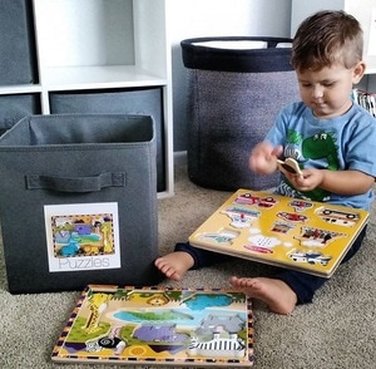Controlling? Oppositional? Defiant?
Or The Digital Child
(Series: Understanding Your Child's Communication/Modality/Learning Style)
Digital - Kinesthetic - Visual - Auditory
Through life coaching, we learn to identify communication styles or "modality" in adults and children. Modality is defined as: "A particular mode in which something exists or is experienced or expressed." Our modality, communication or learning style, is how we operate, communicate and learn in life. It is inherent, and just part of who we are. A child's primary modality is central to how they experience and interact with the world, and can be indicative of their greatest strengths. Identifying and learning how to communicate and teach our children through their strongest modality, is the best way to help them reach their full potential.
There are four communication styles or modalities, they are: Visual, Auditory, Kinesthetic, & Digital. We all have all four of them, but the two we assess highest in are usually indicative of how we move about and operate in life.
The Digital Child
Only 7-10% of the population rate highest in the Digital modality. Digital people are said to be the thinkers of our world, instead of seeing (Visual), hearing (Auditory), or feeling (Kinesthetic) their way through life, Digital people think.
Digital children have a need to not only think about, but make sense of the world, to figure things out, to understand. They are most comfortable with order and organization, and are strong supporters of rules, justice and fairness. They learn or memorize by using facts, steps, procedures, sequences and patterns. They think things should be logical, make sense, or be "correct." They tend to not be spontaneous, since they like to think things through and assess a situation before trying something new. They may struggle socially, and are often seen as being controlling or "bossy" as they attempt to organize or keep in order their playmates and play things. They can be very protective of their toys and other possessions, and often have problems sharing them for fear they will be "messed up" or disorganized. They are most comfortable or feel safest when they are in control, and may choose to play alone if they are unable to be in charge. They may be seen as being stubborn, rigid, or anti-social.
But...Digital children are also amazing; intelligent, passionate, and many times favorites of teachers for being orderly and rule keepers. They can be highly intelligent, have the ability to carry on complex and thought provoking conversations, and are often passionate about a variety of subjects and interests. Still, parenting a Digital child can be challenging. Because they need to know all the facts of a matter, to see the logic, make sense of it and understand it, they ultimately will require more time, information or explanations to feel comfortable or agreeable with a request. Due to their need for order, organization and control in their lives, concern over fairness, as well as their enjoyment of a good verbal debate, they are often seen as being argumentative, non-compliant, oppositional or defiant. Digital children argue or debate because their minds are active and full of information at all times, they can easily see an inconsistency in a statement, or calculate the fairness of a decision, they may also just be looking for a way to show, or share with you, their greatest strength and ability - their mind.
None the less, parents still need to stay in control of their children and households, and so finding ways to instruct, motivate and teach Digital children without having to engage in daily debates and arguments, is paramount to maintaining family peace and order. One way to help a Digital child be more agreeable or open to input, is by making sure their mind is getting plenty of healthy intellectual stimulation and outlet; not only providing opportunities for them to learn new things, but also to share their own thoughts and opinions and have control over making their own choices. Just as Kinesthetic children need physical outlets to release pent up energy to increase focus and be at their best, Digital children need opportunities for mental stimulation and outlet to exercise or expend their intellectual energy. Their minds are their strength, when strengths are given an outlet and utilized correctly, they can be turned into motivation - a way to teach them - to help them reach their full potential. If arguments and verbal debates are a daily occurrence in your home, look for more ways to stimulate your child intellectually, use their minds - ask them what they would like to learn about or what activity they would like to be involved in, let them have more input or choice in their own learning and other activities. Arguments and opposition can also be minimized by engaging Digital children in a way that shows their ideas are respected and valued. Instead of making requests as commands, try asking questions and offering choices. Digital children are more apt to comply with requests if they are asked questions about their own wants and opinions - if their minds are engaged. This can be done at home, but also through involvement in outside classes; groups, projects, and other activities where their ideas and input are encouraged and valued. Offering choices is actually a win, win; parents stay in control of the choices offered, and Digital children feel more comfortable, and agreeable, because they feel they retain control over their lives.
To engage a Digital child; ask them questions, give them choices, and try utilizing:
For more homeschooling/teaching strategies see: Multiple Intelligences: Logical/Mathematical or
The introductory video: Supporting A Logical Learning Style
Only 7-10% of the population rate highest in the Digital modality. Digital people are said to be the thinkers of our world, instead of seeing (Visual), hearing (Auditory), or feeling (Kinesthetic) their way through life, Digital people think.
Digital children have a need to not only think about, but make sense of the world, to figure things out, to understand. They are most comfortable with order and organization, and are strong supporters of rules, justice and fairness. They learn or memorize by using facts, steps, procedures, sequences and patterns. They think things should be logical, make sense, or be "correct." They tend to not be spontaneous, since they like to think things through and assess a situation before trying something new. They may struggle socially, and are often seen as being controlling or "bossy" as they attempt to organize or keep in order their playmates and play things. They can be very protective of their toys and other possessions, and often have problems sharing them for fear they will be "messed up" or disorganized. They are most comfortable or feel safest when they are in control, and may choose to play alone if they are unable to be in charge. They may be seen as being stubborn, rigid, or anti-social.
But...Digital children are also amazing; intelligent, passionate, and many times favorites of teachers for being orderly and rule keepers. They can be highly intelligent, have the ability to carry on complex and thought provoking conversations, and are often passionate about a variety of subjects and interests. Still, parenting a Digital child can be challenging. Because they need to know all the facts of a matter, to see the logic, make sense of it and understand it, they ultimately will require more time, information or explanations to feel comfortable or agreeable with a request. Due to their need for order, organization and control in their lives, concern over fairness, as well as their enjoyment of a good verbal debate, they are often seen as being argumentative, non-compliant, oppositional or defiant. Digital children argue or debate because their minds are active and full of information at all times, they can easily see an inconsistency in a statement, or calculate the fairness of a decision, they may also just be looking for a way to show, or share with you, their greatest strength and ability - their mind.
None the less, parents still need to stay in control of their children and households, and so finding ways to instruct, motivate and teach Digital children without having to engage in daily debates and arguments, is paramount to maintaining family peace and order. One way to help a Digital child be more agreeable or open to input, is by making sure their mind is getting plenty of healthy intellectual stimulation and outlet; not only providing opportunities for them to learn new things, but also to share their own thoughts and opinions and have control over making their own choices. Just as Kinesthetic children need physical outlets to release pent up energy to increase focus and be at their best, Digital children need opportunities for mental stimulation and outlet to exercise or expend their intellectual energy. Their minds are their strength, when strengths are given an outlet and utilized correctly, they can be turned into motivation - a way to teach them - to help them reach their full potential. If arguments and verbal debates are a daily occurrence in your home, look for more ways to stimulate your child intellectually, use their minds - ask them what they would like to learn about or what activity they would like to be involved in, let them have more input or choice in their own learning and other activities. Arguments and opposition can also be minimized by engaging Digital children in a way that shows their ideas are respected and valued. Instead of making requests as commands, try asking questions and offering choices. Digital children are more apt to comply with requests if they are asked questions about their own wants and opinions - if their minds are engaged. This can be done at home, but also through involvement in outside classes; groups, projects, and other activities where their ideas and input are encouraged and valued. Offering choices is actually a win, win; parents stay in control of the choices offered, and Digital children feel more comfortable, and agreeable, because they feel they retain control over their lives.
To engage a Digital child; ask them questions, give them choices, and try utilizing:
- Puzzles
- New Languages
- Patterns
- Riddles
- Memory Games
- Card Games
- Organizing Things
- Legos
- Construction Games
- Notebooks, Lapbooks & Unit Studies
- Interest-Driven Groups & Projects
- Computer Activities; Including Building, Creating & Problem Solving Games
For more homeschooling/teaching strategies see: Multiple Intelligences: Logical/Mathematical or
The introductory video: Supporting A Logical Learning Style
Partial Bullet List: www.ronitbaras.com
When you know a child's communication and learning style, or modality in life, it makes it much easier to work with them. With this newfound knowledge, things that were seen as problems before, are now understood as just being part of who your child is. When working with Digital children, small adjustments to your parenting or teaching routine that take into consideration the child's need for order, organization, and having choices in their learning and lives, will lead to improvements in the child's outlook and well being, soon resulting in a child who is engaged, excited and happy about life and learning.
Hugs & Happy Parenting!
Julie L Gibson-Vasquez
The Proactive Parenting Coach




